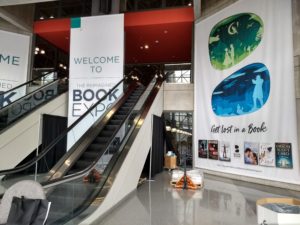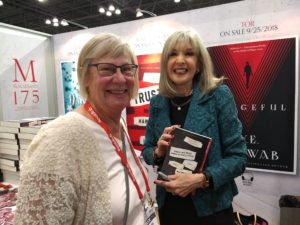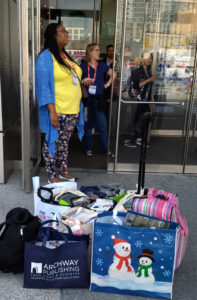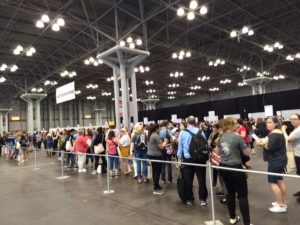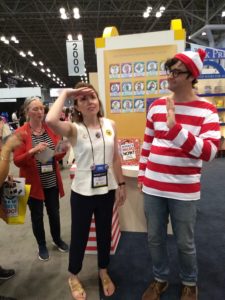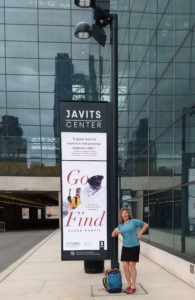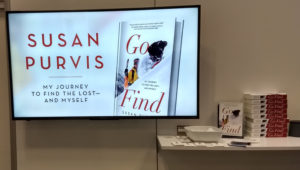
It’s been awhile since I looked into the current details on creating an audio book. With self-publishing, authors have options these days and I have created my own audio book after a publisher forgot to add those subsidiary rights to the contract. It was a great learning experience and I worked through ACX, which was the first and only way to self-pub in audio back then. These services can merge service providers (voice actors/narrators/production, distributors, & authors) and provide stock contracts between the parties and a means to communicate and create an audio book.
Nowadays, there are more service providers and an author can even consider making their own recording. The first step is to confirm you have your audio subsidiary rights before you proceed with creating an audio book. But once you have done that and your rights are available, an author has options to produce and distribute their own audio book.
Here’s what I learned:
Below are a few service providers for Audio Books to get you started. These are platforms that bring authors together with the people & services you will need.
SERVICE PLATFORMS
ACX.com is a marketplace that connects rights holders (authors, publishers, agents etc) with narrators and producers to enable audio book production. It’s an Amazon company and audio books produced through the site are sold on Amazon, Audible and iTunes.
FindawayVoices.com – can help match you with a narrator, or you can publish your own files separately. They have a royalty share option as well as a pay per finished hour contract. The big difference here is that you can set your own price AND set the price separately for retail and library markets. Plus you can use their Authors Direct app to sell audio direct to listeners.
KoboWritingLife – if you use Kobo to create your work, your audio book is eligible for different kinds of promotion. Kobo sells audio books to its readers, but Kobo also works with its sister company, Overdrive, for library distribution, as well as having distribution deals with Walmart and other companies. You can reach the same markets through Findaway but the additional promotion may make it worthwhile to go direct to KWL.
Do a Combo – A new author might choose to do a royalty split with a narrator/production company. It’s generally a more affordable option, but as far as opting for a wider distribution, you can choose a combo. You may choose to go through ACX but with a non-exclusive contract for Amazon/Audible distribution. You may find wider markets in Findaway Voices. NOTE: If you already have an exclusive royalty split agreement through ACX, you may decide to change that to non-exclusive at the time of renewal. You can download your audio file from ACX and transfer it to Findaway Voices when you have the rights to do it.
Whatever you opt to do, be sure you understand how your audio book will be distributed and how your royalties will apply over the long term.
AUDIO PRODUCTION
You have two choices for audio production. You can choose to record the book reading yourself OR you can hire a professional (and a service provider) to do it for you. Speaking as a former high school drama student, it’s tempting to try a recording, but I know better. Despite the benefits of an author knowing the material and hearing the dialogue in their mind, it takes a special kind of voice actor to pull off a great audio book. Merely reading the words is not enough.
For those of you willing to try it, here’s what you would need to do your own recording.
- A quiet place to record
- Equipment/Software
- Time
- Technical expertise
Depending on your budget, the equipment and software could be as little as $200, but the biggest investment will be in the time it will take you to not only produce a recording, but the effort to edit in post-production. According to Audible, an industry professional reads approximately 9400 words per hour. If your book is 90,000 words in length, it will take 9.57 hours to produce a recording, minimum. This is NOT a speed reading exercise. To be conservative, you should count on doubling that time to account for retakes, breaks between sessions, and allowing your voice time to recuperate.
I found this great link on How To Make an Audio Book: A Do It Yourself Guide. This is a detailed guide if you are serious about doing your own audio book. It goes into specifics of the equipment you should consider from your computer hardware to microphone, to recording environment, and software. The article goes into depth of one person’s experience and what they specifically used. Very cool. It even goes into suggestions on the opening and closing credits and talks about the image used for the distribution cover. There are also specifics on how to edit. Great stuff.
PROMOTION
FOR AMAZON/AUDIBLE – First off, it’s important for your audio book to appear on the book pages for your other formats. It’s not only important for readers to find all your formats, but if your audio is not linked in all formats, the Whispersync technology (a product of Amazon and Audible) won’t be synchronized between your ebook and audio. That’s a nice convenient feature for readers/listeners. PLUS, once Whispersync is available, the reader can purchase the audio book at a reduced price.
If your audio book is shown on an orphan page where it is not merged with the other formats of your book, send an email to KDP-support@amazon.com & include the links to the Amazon pages for all the formats.
SOUNDCLOUD – This is an app you can get on Google Play/Store that will feature an audio clip of your book once you become a member. It allows you to promote on social media and include a sound clip link to give readers as a sample. A sound clip can be an interesting way to attract new readers if you cross post it on social media and have it on your website book page.
Where to Market Your Audio Book on Facebook – There are a number of Facebook groups you can query to find sites to subscribe and promote your audio books. Here are a few:
Audio Book Addicts 6000+ members
Audio Books! Over 3 Million followers
Aural Fixation Over 3 Million Followers
Other AudioBook Promo Sites:
Audiobook Jukebox – submit your audio book for a review. Reviewers can request your audio book for a review, similar to Netgalley.
Audio Books Unleashed – You load your promotion codes for your freebie giveaways on the listing page, and the site gives one to each listener requesting the audio book.
AudioBookBoom – This is a site that’s the equivalent of BookBub but for audio books.
Audio Book Marketing Resource List – This is a huge list of sites where you can have your audio book reviewed or promoted. Tons of links and includes more Facebook gand Goodreads groups focused on audio books.
Paid Advertising:
BookBub has ChirpBooks, which is an audiobook promotion service for limited time price cuts. They are partnered with Findaway Voices because other distributors don;t allow you to set or change your prices for an audio book. You can sign up to be on the wait list on this page.
You can pay to advertise your audio book in AudioFile’s Indie Press Showcase.
I was amazed at all the new things online for authors who might want to retain their subsidiary rights for audio books. I listen to audio book almost every night. It’s a relaxing way to fall asleep – like someone reading you a bed time story in the dark. I also love that retailers, like Amazon, give readers a discounted price for the audio book addition to your library. I’ve gone back to my reading list to see if some of my fav authors have audio book sold at a good price. Things have definitely changed for the better for audio books.
For Discussion
This post is only the tip of an iceberg for all the resources available for audio books and an author’s options. If you have any audio book experiences or resources to share, please put them in your comments.
Share some of your favorite voice actors/narrators.
Share some of your favorite audio books.
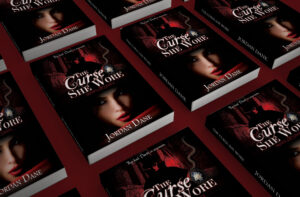
The Curse She Wore – Available for Pre-Order – Releases Feb 10, 2020.
Trespassing on Fate’s turf comes with a price for two broken people–a price they never see coming.

